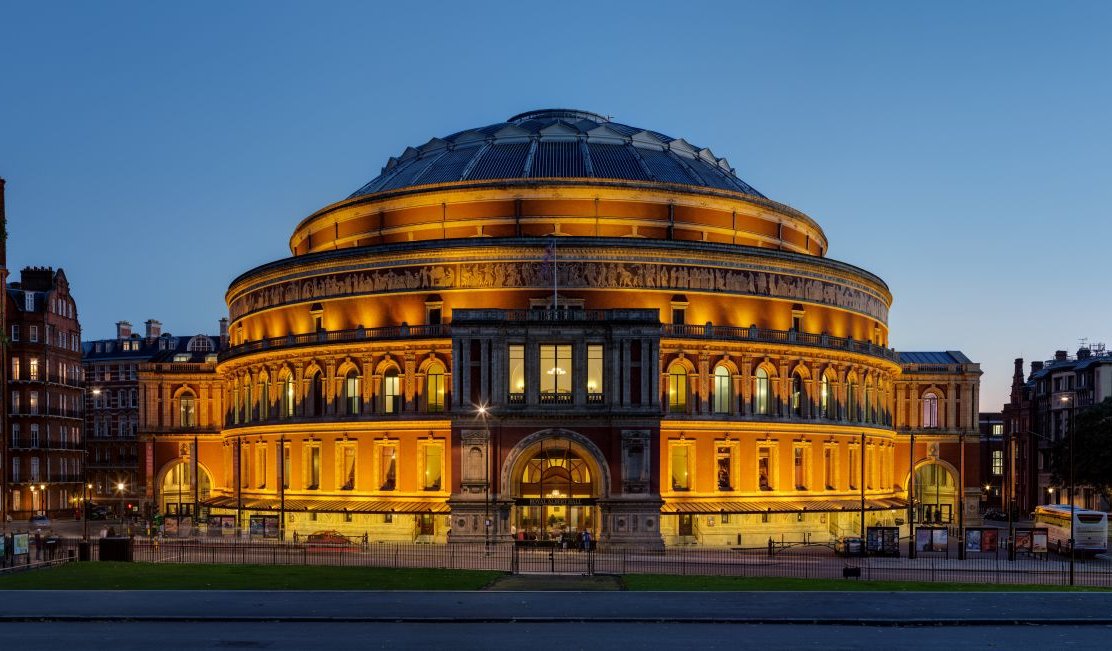
Program
Featuring
Other information
The event is about 2.5 hours long.
About the event
Competition-winning German soprano Anna-Lena Elbert, still in her late twenties, sings Ligeti; a composer emigrating to America writes a piano concerto in the last months of his life; one of the undisputed geniuses of Western European classical music pays tribute to Napoleon, and then to an unsung hero instead. This focused yet diverse compilation is the program of the Budapest Festival Orchestra’s third London concert, at the Royal Albert Hall. The brilliant coloratura set of György Ligeti’s avant-garde “anti-opera” will be heard; London-based Hungarian piano legend András Schiff, knighted by Queen Elizabeth II in 2014 in recognition of his accomplishments in music, will perform the Bartók piano concerto, and the solemn exclamation point to close the evening will be delivered by Beethoven’s monumental “Eroica,” a milestone in the history of music.
Gepopo, the chief of the secret police of Brueghelland, gives a warning to Prince Go-Go: the intelligence service has discovered that a giant comet is approaching and will destroy the planet. Due to the messenger’s fear and paranoid hysteria, the coded message becomes almost incomprehensible. Le Grand Macabre, Ligeti’s only opera, is an absurd caricature, full of sarcastic wit and virtuoso grotesqueness. This is particularly true of the Gepopo arias, which became individual concert pieces in 1991. Performing the wails of the police chief desperately singing about the end of the world, is an extremely difficult technical task for the soprano; the chamber orchestra, sometimes operating as a choir, accompanies the cries for help with similar virtuosity.
The intensive, almost aggressive sound of his earlier works gives way to mellowness in Piano Concerto No. 3 with the dedicatee, his wife, Ditta Pásztory, in the composer’s mind; here Bartók returned to more traditional tones and forms. In spite of the composer’s more sparing use of Hungarian folk tunes and embracing verbunkos music he had earlier rejected, as well as the piece’s more accessible tone, this work is truly Bartókian to the last note. Evoking the atmosphere of the woods, the often improvisatory first movement is followed by Bartók’s most sincere, most moving music: a religious, chorale-style song, the prayer of the composer on a better day of his illness. The dynamic and joyous finale is of a folk song character.
Regardless of the dedication to Napoléon, and regardless of the hidden programs invented by fanciful musicologists, what we know for sure is that Beethoven eventually dedicated his Third Symphony, “composed to celebrate the memory of a great man,” to one of his most generous patrons, Prince Lobkowitz. The gigantic, dramatic first movement is full of melodies; even so, the music has a unified atmosphere. The slow funeral march deepens the grief of the preceding movement, offering solace with the unexpectedly emerging Scherzo. The symphony ends in a variational finale, the main subject of which has already been used by Beethoven several times. The movement includes a fugue, Hungarian motifs, and much more.